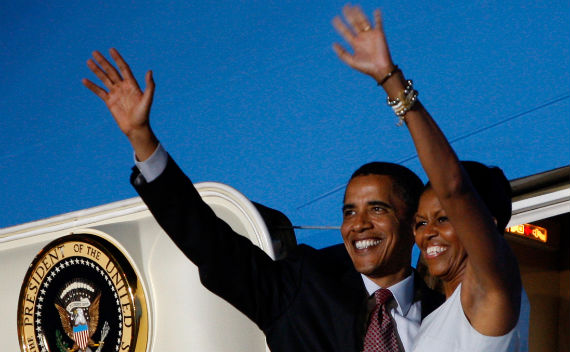Obama in Africa
More on:

According to AP, the White House is considering a presidential visit to Africa, in part at least to highlight President Obama’s new emphasis on the continent. Apparently which African countries remains unresolved.
I hope the White House thinks twice. An Obama visit could make a powerful statement if it is tied to a diplomatic or political issue of substance. He used his 2009 visit to Ghana, for example, to underscore his administration’s commitment to good governance in a country that is developing a track record for credible elections. On the other hand, President Bush’s 2003 visit to Nigeria in the aftermath of bad elections discouraged the human rights community in that country and may have encouraged Nigerian president Obasanjo to try to remain in office indefinitely.
A presidential visit is too important to use merely to reassert the Obama administration’s general interest in Africa. That point was already made by the Ghana stop in 2009. Further, the security and other requirements of presidential visits impose an enormous burden on small, developing states and can engender resentment from the hosts. I witnessed that phenomena first hand during Vice President Al Gore’s visits to post-apartheid South Africa in conjunction with the newly established U.S.-South Africa Binational commission. For example, senior officials, including the speaker of the house, publicly criticized U.S. “arrogance” in insisting on closing streets for the passage of official motorcades. The press had a field day at U.S. expense.
More on:
 Online Store
Online Store